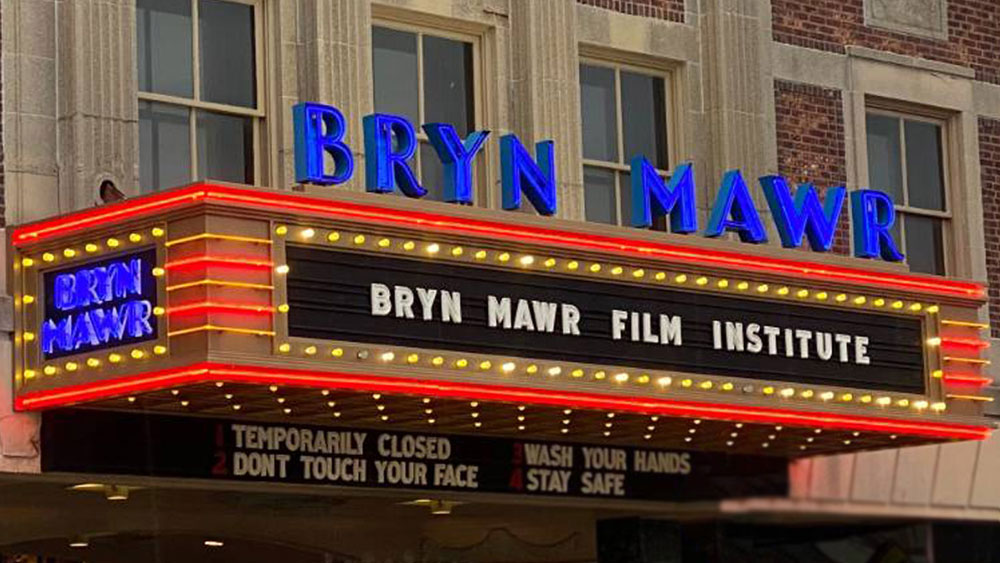
September 16, 2020; Patch.com, “Beverly, MA”
Since March, NPQ has reported often on the devastating impact of COVID-19 on the nonprofit arts sector, especially for performing arts organizations and museums. Movie theaters have received less attention, perhaps because consumers have so many other options for consuming film. However, this sector of the arts world also has had to cope with dramatic revenue losses and the risk of long-term audience erosion.
Still, nonprofit venues like the Cabot Street Cinema Theater in Beverly, Massachusetts, and Bryn Mawr Film Institute (BMFI) in suburban Philadelphia are finding ways to hang on until it is safe to reopen.
As reported in the local Patch outlet, the Cabot already had a mixed business model, housing both a cinema for screening films and a music venue. Both spaces will remain shuttered for the foreseeable future. The nonprofit has been offering virtual movies—through a streaming service—and presenting concerts in a series called “The Porch Sessions” at an outdoor space. The concerts, including two recent sold-out shows with Livingston Taylor, were conceived to offer gigs to musicians, provide live entertainment to community members, and generate much-needed revenue for the Cabot.
The concerts had been planned for the “quaint, intimate” Hale Farm venue. However, they were forced to become even more intimate when, in early August, Massachusetts lowered capacity for outdoor gatherings to 50 people owing to a surge in COVID-19 cases. Cabot executive director Casey Soward said that decision almost caused the organization to cancel the series. “But then we sharpened our pencils, and talked again to our artists and our vendors, and everything fell into place. The Porch Sessions have been a way to help people reconnect and take a break with all the craziness out there.”
Soward notes that between concert revenues and his nonprofit’s supportive membership, the Cabot has so far been able to survive, even as other venues, both locally and nationally, have closed for good. The National Independent Venue Association has said live music venues could lose as much as $8.9 billion in 2020 if pandemic restrictions continue through December. The organization is actively seeking government financial relief through its #SaveOurStages campaign.
The cinema sector is also at risk. In recent months, larger chains have reopened theaters with limited seating and other pandemic-related restrictions. The trade group National Association of Theatre Owners, which represents mostly large, for-profit businesses, although it also has independent and small chain members, launched its own relief campaign, #SaveYourCinema.
Sign up for our free newsletters
Subscribe to NPQ's newsletters to have our top stories delivered directly to your inbox.
By signing up, you agree to our privacy policy and terms of use, and to receive messages from NPQ and our partners.
It is, of course, easier to reopen when you have a large theater that allows for social distancing. But these reopenings are not without risk. As noted in a recent article in the Philadelphia Inquirer, going to the movies is still described by the CDC as “a higher-risk activity,” even with precautions. In New Jersey, moviegoers may remove masks to eat or drink concessions. In Philadelphia, concessions cannot be sold, and masks must be worn at all times. (But are they, when the lights go down?)
Smaller, independent cinemas—most of which are nonprofits—face additional challenges. Their theaters often are small, so social distancing would allow for very few patrons at a time. BMFI, an “arthouse” cinema that screens independent, classic, and foreign films in four theaters, has not announced a reopening date. Health and safety concerns are not the only problem. As explained in a July message to members:
All of this work toward safety won’t matter if we cannot provide the superior movie-going experience that you’ve come to expect from BMFI. Part of that is having great movies for you to watch in the theater, the way they were meant to be seen. So far, many of the films we’d like to show have had their release dates pushed back to the fall…. Striking the right balance between safety, quality, and comfort is what we’re working on now, and we won’t reopen until we’ve cracked the code.
The Art House Convergence, an organization that supports “community-based, mission driven media exhibition,” has a website section devoted to strategies for staying connected with audiences while theaters remain closed. Among the ideas are adding member benefits like streaming and online film discussions; hosting virtual film festivals, talk backs, virtual viewing parties, and online trivia and games.
When BMFI closed in March, it initially suggested streaming services so members could keep enjoying films. Later, the group added Theater 5, a virtual venue that streams new releases and other arthouse fare. The nonprofit gets a share of each ticket sold for these online offerings. BMFI also offers year-round film courses—for now, online.
Like other independent, nonprofit cinemas, BMFI relies on support from members and sponsors, so community engagement has remained a priority throughout the pandemic. Mostly, the outreach has been virtual. But one weekend, members were invited to stop by for socially distanced curbside pickup of a free bucket of popcorn.
Nonprofit venues like the Cabot and BMFI may still be weeks (or even months) away from opening their doors again. For now, like so many other arts nonprofits, they continue to do what they can to support their communities, from a safe distance. They are counting on those communities—and on the loyalty they have long nurtured with members—to see them through to the other side of the pandemic, and to return to their theaters as soon as it’s safe to dim the lights and start the next show.—Eileen Cunniffe













